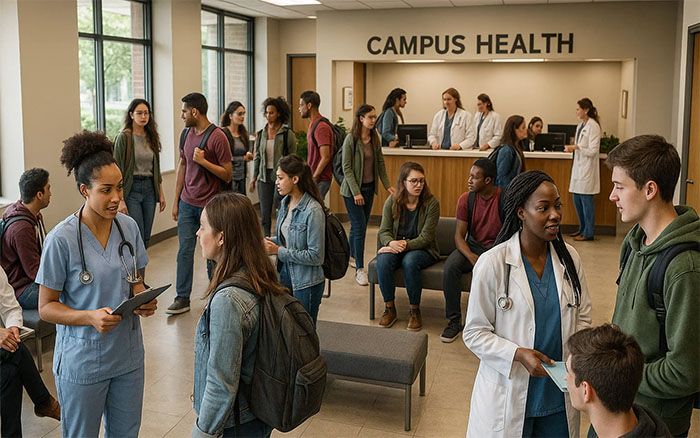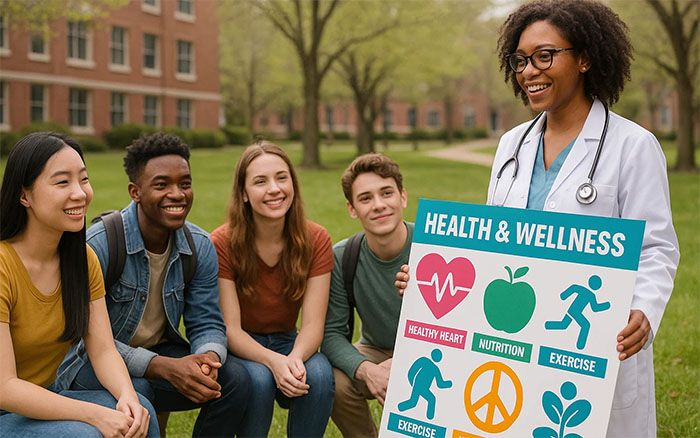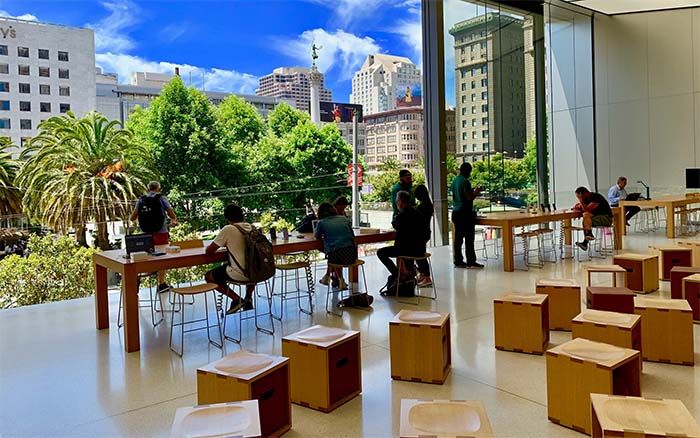Embracing Native American Student Organizations
After high school, only 17% of Native American students continue their education compared to 60% of the rest of the U.S. population. This emphasizes the importance of Native American student organizations on college campuses across the country. These organizations empower Native American students, foster a sense of belonging, and significantly impact their mental health. In this article, we’ll explore the importance of these student organizations and how they contribute to overall well-being.
 Empowering Native American Students Through Student Organizations
Empowering Native American Students Through Student Organizations
Native American student organizations serve as a vital platform for empowerment, allowing students to express their concerns, embrace their culture, and address unique challenges. These organizations foster a strong sense of community, connecting Native American students with peers who share similar experiences.
Going beyond mere gatherings, they actively cultivate feelings of belonging and pride among Native American students. Through a diverse range of activities, including cultural events, workshops, and guest speaker series, they aim to reinforce resilience, showcasing the rich diversity of Native American cultures and providing opportunities for cross-cultural learning.
In promoting cultural awareness and understanding, these organizations play a key role in challenging stereotypes and discrimination faced by Native American students. Through educational workshops and awareness campaigns, they aim to educate the broader student body about the invaluable history and contributions of Native Americans. This not only creates a more inclusive and respectful campus environment but also fosters meaningful connections between Native American students and their non-Native peers.
These organizations engage in a wide array of activities and collaborations that advance cultural awareness, challenge stereotypes, advocate for policy changes, and nurture leadership development. Collectively, they establish a supportive and inclusive environment where Native American students can thrive academically, socially, and personally.
The Impact of Student Organizations on Mental Health
Mental health is a significant concern among college students, and Native American students are not exempt from these challenges; 19% of the population reported having a mental illness within the past year. This emphasizes the importance of Native American student organizations playing a vital role in supporting the mental well-being of these students.
These organizations often provide a safe space for students to discuss mental health topics openly where they may otherwise feel apprehensive about sharing their thoughts. Through workshops and support groups, they help reduce the stigma associated with seeking help and encourage students to prioritize their mental well-being.
Moreover, student organizations can collaborate with campus counseling centers and mental health professionals to provide resources tailored to the unique needs of Native American students. By addressing these specific concerns, student organizations ensure that mental health support is accessible and culturally sensitive.
An Example of Student Organization Excellence
The impact of student organizations on Native American students extends beyond their individual experiences. These organizations contribute to the overall diversity and inclusivity of the college campus. When Native American students feel supported and valued, they’re more likely to engage in the broader campus community. This increased involvement enriches the cultural fabric of the college, promoting cross-cultural dialogue and understanding.
Furthermore, the sense of belonging cultivated through student organizations has been shown to positively impact academic success. When students feel connected to their college community, they are more motivated to excel academically, seek out resources, and persist despite challenges. One example of a student organization that fosters a sense of belonging for Native American students is the Native American Student Association (NASA). NASA is dedicated to promoting cultural awareness, providing support, and creating a sense of community for Native American students on campus.
Through regular meetings, NASA offers a platform for Native American students to share their experiences, discuss important issues, and celebrate their cultural heritage. These gatherings provide a safe space for students to express themselves and also serve as a reminder of their unique identities and the importance of preserving their cultural traditions.
In addition to regular meetings, NASA organizes various social events throughout the academic year. These events range from cultural festivals and powwows to movie nights and potluck dinners. When participating in these activities, Native American students can connect with their peers, learn about different tribal customs, and showcase their talents.
Overall, student organizations like NASA play a crucial role in fostering a sense of belonging for Native American students in college. Providing a supportive community, organizing social events, offering mentorship programs, and facilitating connections with faculty and professionals, help empower Native American students to embrace their cultural heritage, thrive academically, and succeed in their future endeavors.
Other Ways Campuses Can Support Native Students
Although student organizations can make a significant impact on the college experience for Native students, there are also other strategies that colleges can take to promote a more welcoming and positive environment:
- Ensure there is Native faculty: Native students often face challenges and feelings of isolation on college campuses. Having Native faculty who understand these challenges can provide the necessary support and guidance, which, in turn, can lead to higher retention rates and academic success.
- Invest in Native mental health staff: This ensures that the unique mental health needs of Native American students are properly addressed and reduces stigma around seeking help. Investing in diverse mental health staff that’s representative of the campus community and country at large helps to address the ongoing disparities in healthcare access for Native communities, working towards a more equitable and inclusive campus community.
- Hire a liaison: Having a liaison versed in Native cultures ensures that the college is culturally sensitive and aware of issues affecting Native students. This is essential in creating a supportive and respectful campus environment.
- Honor the land and history: By honoring Native American land and history on college campuses, institutions send a powerful message of respect, inclusion, and commitment to creating an environment where Native students can thrive academically and personally. It reflects an understanding of the importance of cultural diversity and the role of Indigenous communities in our shared history.
While student organizations play a crucial role in enhancing the college experience for Native students, it’s equally vital for colleges to adopt a multifaceted approach to support their needs. This includes having Native faculty for guidance and retention, hiring liaisons for cultural sensitivity, and honoring Native land and history to demonstrate commitment to a more inclusive and respectful campus environment. Together, these strategies create an atmosphere where Native students can excel academically, find support, and celebrate their heritage.
Key Takeaways
In conclusion, Native American student organizations have a profound impact on college campuses. They empower Native American students, foster a sense of belonging, and support mental health. By providing a platform for students to celebrate their culture, voice their concerns, and connect with peers, these organizations create an inclusive environment where Native American students can thrive both academically and personally. Recognizing the role of student organizations in the success and well-being of Native American students is crucial in creating a more equitable and supportive college experience for all students.
















